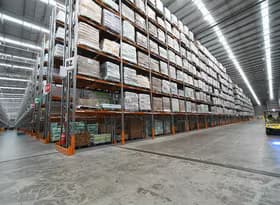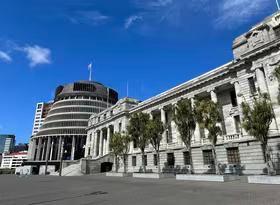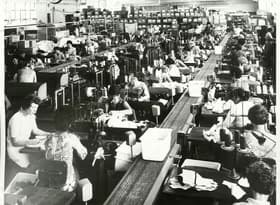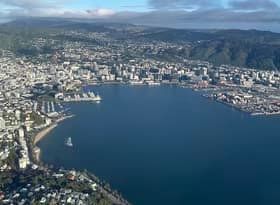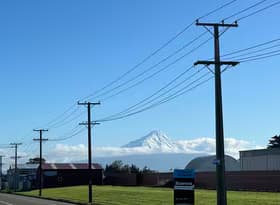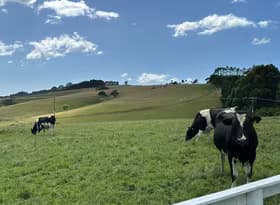Plastic bag ban provides opportunities and challenges to packaging sector
Kiwis have overwhelmingly supported the government’s plastic bag ban, which will kick in mid-2019. The ban presents the wider packaging sector of 50,000 workers with an opportunity to retool and grow itself as consumers increasingly look for more environmentally friendly options.
In this article I look at the wider packaging sector in NZ to explore where it fits into the wider economy. I also examine the reasons and implications of the plastic bag ban, before setting out changes that the sector could consider as it determines its future.
Just what is the packaging sector?
The packaging sector in NZ is a small but growing part of the economy. The Infometrics Sector Profile for the packaging sector shows that in 2017 the sector contributed $4.2b to the economy, or 1.8% of NZ’s total GDP.
This contribution was led by the 51,000 workers who are employed within the sector, across almost 6,000 different businesses. Workers in the packaging sector earnt around $58,100 per year on average in 2017, on par with the national average earning of $58,900pa.
The plastic packaging sector itself is a smaller component of the wider packaging sector, with around 1,700 workers across 70 different businesses. However, plastics packaging workers earnt $70,900pa on average in 2017.
The top three regions in NZ for packaging are Auckland (36% of the workforce), Bay of Plenty (13%) and Canterbury (12%). These three regions have between 6,000 and 18,000 workers each, with the other 13 regions all having less than 5,000 workers each.
Graph 1
Based on our latest forecasts, which do not account for the plastic bag ban, Infometrics estimates that the wider packaging sector will need almost 12,000 additional workers between now and 2022. Of these additional workers, 15% will be new job openings to cope with growth, and the remaining 85% will be to replace workers exiting the sector for retirement or other reasons. However, these are our business-as-usual forecasts, as we are uncertain about how the sector will respond to the plastic bag ban.
6-month clock starts now for plastic bag ban
Last Saturday Associate Minister for the Environment Eugenie Sage confirmed that the ban would go ahead for all plastic shopping bags under 70 microns in thickness – incorporating a larger range of bags than first thought. Cabinet will decide by the end of the year when the formal deadline is, but it will be around mid-2019.
The ban is a result of a consumer push for more sustainable packaging options, with single-use plastic bags being a significant contributor to marine litter. The Ministry for the Environment estimates that plastics make up around 80% of all marine litter, which has flow-on implications for our marine and fisheries stocks, and tourism sectors if the coast is littered with plastics.
More quantitatively, the World Economic Forum estimates the “after-use externalities for plastic packaging, plus the cost associated with greenhouse gas emissions from its production, is conservatively estimated at $40 billion annually – exceeding the plastic packaging industry’s profit pool.”1
Consumers have made their expectations on plastics packaging clear: 92% of submitters on the plastic bag ban supported the ban, with 70% wanting the ban to occur within 6 months. Around half of all shoppers now report they use reusable bags when shopping. Major supermarkets and other retailers have also voluntarily removed plastic bags from use.
Transition period allows sector to retool
The ban has obvious positive environmental outcomes but doesn’t fully consider the effect on plastic bag manufacturers, the wider packaging sector, or related industries and suppliers up and down the supply chain. The 6-month transition period provides enough time for those working to manufacturer plastic bags to retool, retrain, and change their business focus so they aren’t left without a job in mid-2019. Plastic bag manufacturing is relatively specialised, meaning workers are unlikely to have highly-transferable skills that they can use to get another job straight away. Similarly, a ban on plastic bags is likely to increase demand for non-plastic packaging, meaning the time is now for manufacturers and workers to plan their next steps.
Plastic bag manufacturing workers may need to retrain to acquire different skills to integrate themselves into a different line of work, and the 6-month timeframe allows them an opportunity to set this up before they are out of a job and without a plan.
For the manufacturers themselves, the shift away from plastics manufacturing opens doors to retool factories to produce other, more sustainable packaging, or entirely new products. Again, the transition time provides an opportunity to scope out the next move for the company and its workers.
With around 1,700 workers and 70 businesses, there’s a sizable number of workers and businesses who may not able to continue operating if they can’t manufacture plastic bags. Retooling and retraining provides pathways to ensure that these families and business owners can find a new opportunity to pursue.
Sustainable production, not recycling, may be best
Plastics in general appear to be on a downwards production path, as a result of more environmentally-conscious consumers wanting a more sustainable option. Regardless of your position on plastics, the market is driver by consumer demand, so change is upon us one way or another.
Within this, it may be that designing plastics products, even if they are recyclable, is no longer the best option. NZ has been hit hard with a ban from China on receiving plastics for recycling, after contamination issues. The ban has meant NZ’s plastics recycling has dropped in price, making it more expensive for local councils to sell recycling overseas to cover recycling costs. As a result, more and more recyclable plastics are heading straight to the landfill, defeating the purpose of recyclable materials.
The wider shift away from plastics packaging opens new doors for different packaging options, in particular paper and cardboard-based products which are more sustainable. Innovative new product options, such as beeswax-based packaging and similar natural options are increasingly being seen in shops, speaking to their viability and demand from consumers.
The time to shift towards sustainable production is now
NZ’s plastic bag ban beginning in mid-2019, and an increasing amount of recyclable plastics heading to the landfill instead of a sorting facility, shows a shift away from plastic packaging demand. Consumers have started voting with their feet and their wallets towards more sustainable and environmentally-friendly packaging options. With a short transition period now available before the NZ plastic bag ban begins, now is the time for businesses and workers to evaluate their options and consider shifting towards a more sustainable packaging future.
1 World Economic Forum. 2016. The New Plastics Economy: Rethinking the role of plastics – Industry agenda . Geneva: World Economic Forum.

